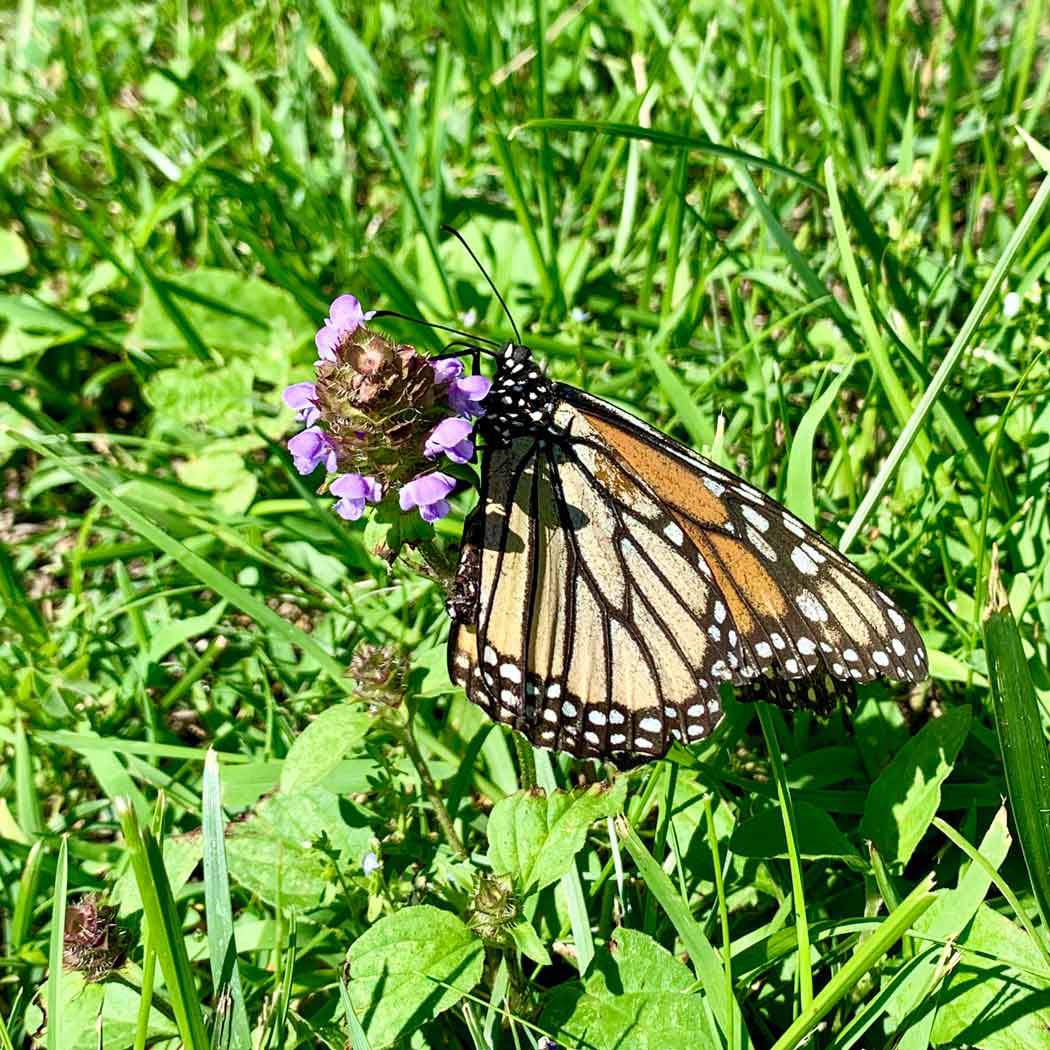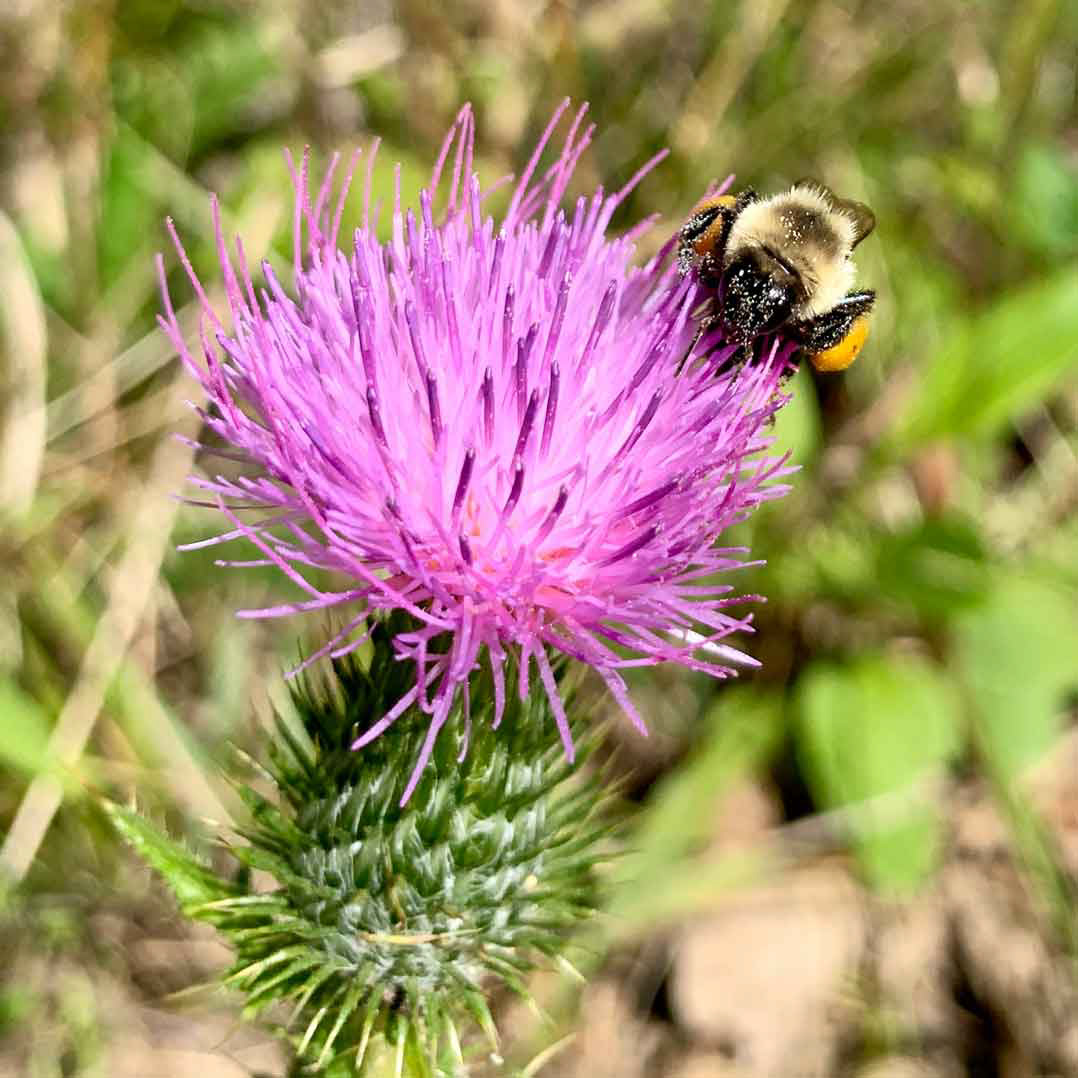Bees are one of the most well known pollinators. We see them visiting flowers, collecting pollen, and making honey. You may have heard that the bee population is in decline because of stresses from climate, fungus, and pesticide use, but bees are not the only pollinators in distress. Birds, bats, butterflies, moths, flies, wasps, and even some small mammals are also pollinators and they all need our support.


Can you even imagine a world without flowers?
Eighty percent of the worlds flowering plants need a pollinator to reproduce. I don’t know about you, but I don’t think I would survive for long in a world without flowers.
In addition to that scary thought, you might be surprised to know that a third of all the food we eat comes from a flowering plant that requires pollination. When any part of the plant-pollinator ecosystem breaks down our food system suffers. That’s even scarier.
So what can we do to help the pollinators?
The best thing you can do is to avoid using pesticides and herbicides in your gardens, yards, and lawns. Insects and native plants need to be a part of our local ecosystem and there are plenty of ways to manage them in a healthier way. HGTV has a helpful article about managing your green spaces without pesticides.
One way to naturally reduce the need for pesticides in the first place is to plant native species. Native species are already familiar with the local pests and have built-in survival mechanisms that reduce the need for human pest intervention. These plants also provide food that supports the local pollinators.
Another way is to avoid mowing in the spring and allow the native plants to bloom. This supports the pollinators when they are emerging from their winter rest and need the extra nutrients the spring plants provide. No Mow May has become a thing in many parts of the country and it is an easy way to help pollinators. Bob Vila wrote about his experiences here, and the Matthaei Botanical Gardens wrote about the details for the city of Ann Arbor, here.
Finally, if you are interested in some fun details about gardening for pollinators, Floret Flowers wrote a blog post about Attracting Pollinators.
Other helpful resources
The Pollinator Partnership has a list of pollinator friendly plants for your region, in addition to lots of other helpful resources to support your local pollinators.
The US Fish and Wildlife Service has a number of great articles, including: How You Can Help, Reversing Pollinator Decline, and Beyond Monarchs Pollinator Primer.
Remember that even the smallest changes we can make will make a big a difference for our pollinator friends.
Wishing you a Bee-utiful Day in the Garden!